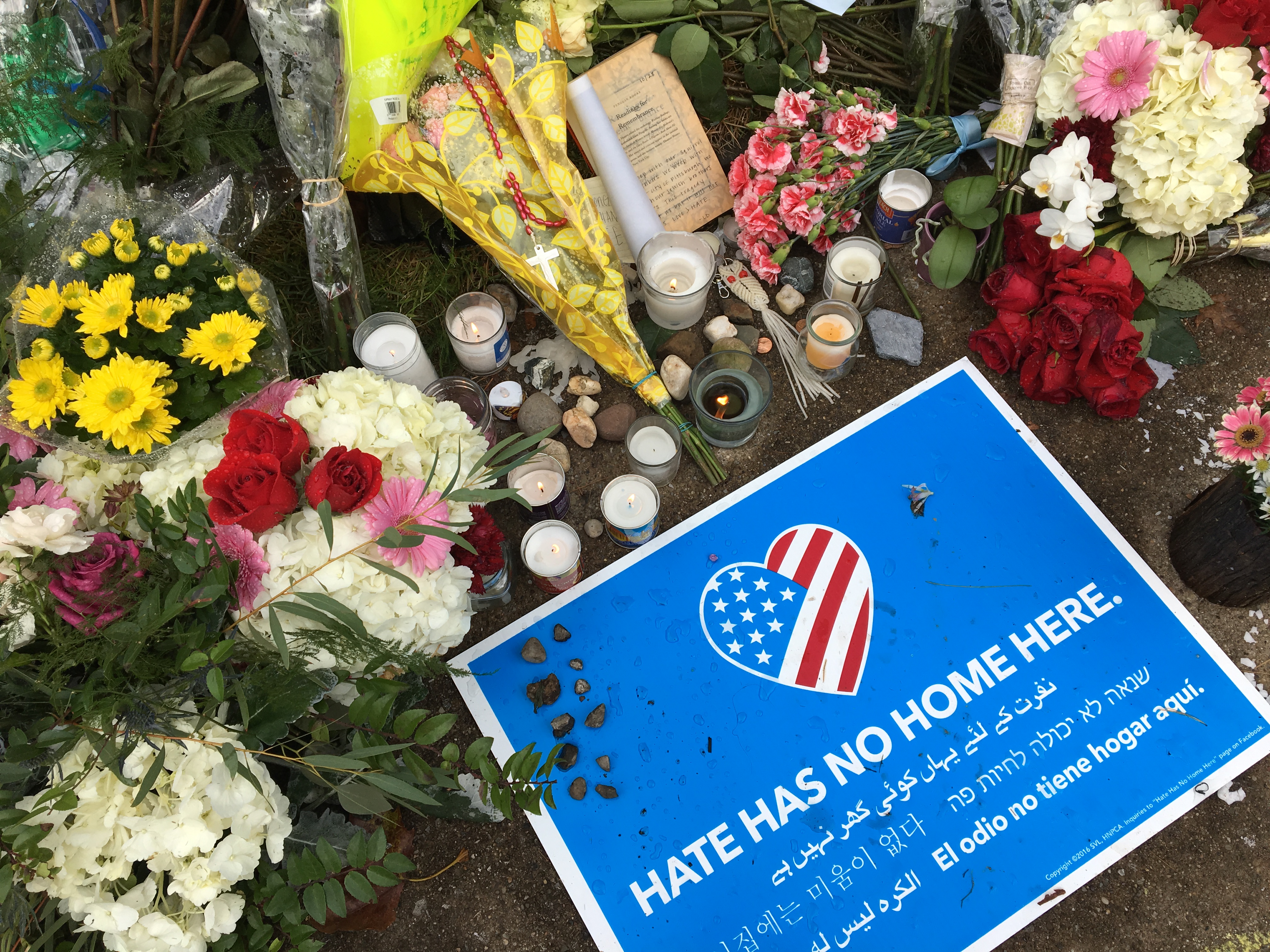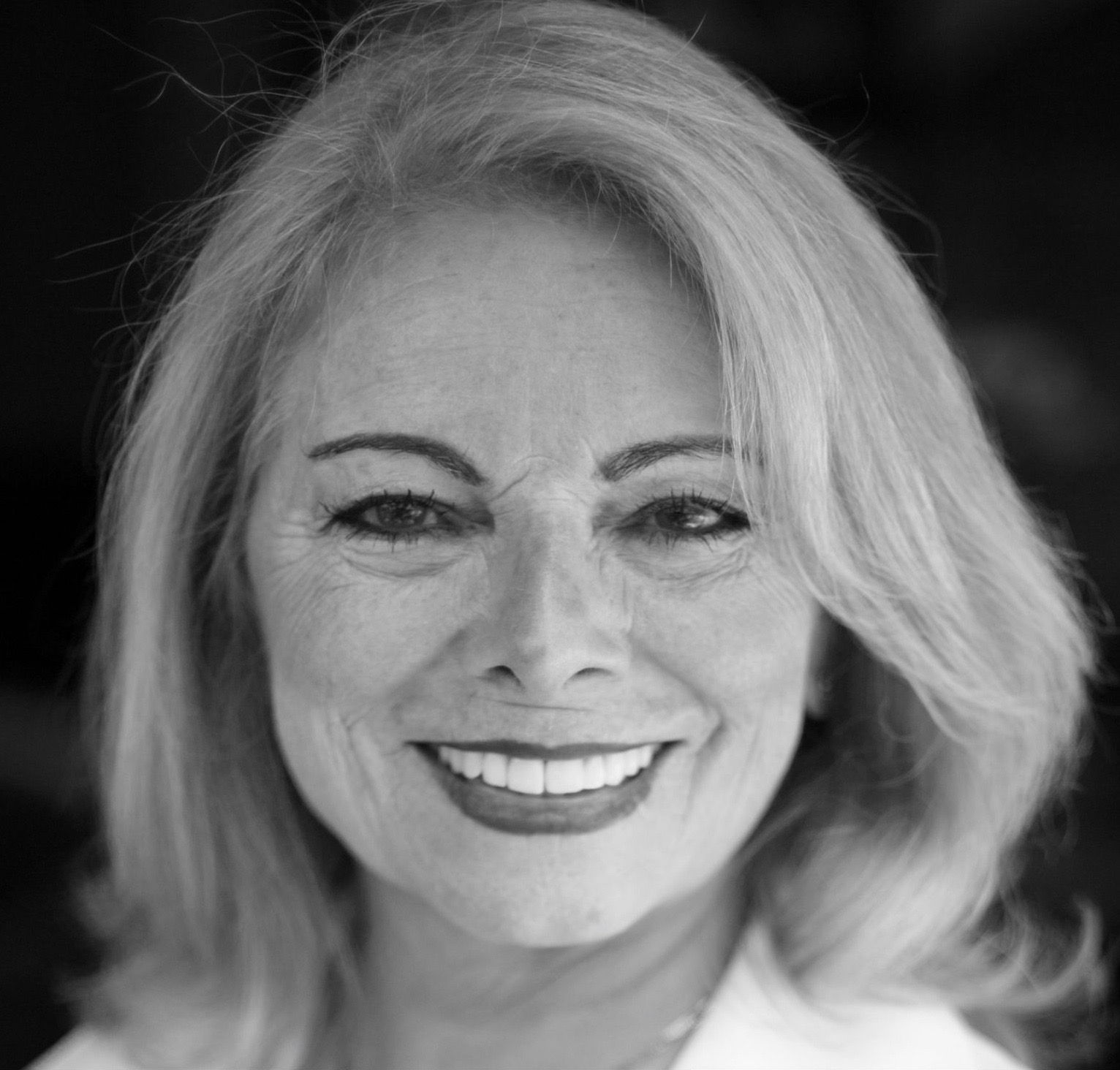 Hate is not welcome here. Photo by Kelly Hartog
Hate is not welcome here. Photo by Kelly Hartog Anti-Semitism has been growing in the United States for years, and we have seen numerous signs of it, including the physical abuse and harassment of Jews wearing religious clothing, Jewish women accosted and insulted in their car and our youth endlessly discriminated against, intimidated and silenced on campuses all over the nation. There have been thousands of incidents, for years, and now a big explosion. We are not even sure if this is not the beginning of many more. As an Israeli French friend visiting recently said, now it is like in France and Europe. I have been expecting these developments with much concern and looking at our reactions.
I saw us being on high alert and unable of escaping the triggers of our Holocaust trauma. I have seen when we have overreacted, accusing the wrong people (such as the 400 hoax threats against Jewish Community Centers) and politicizing every incident. I have worried that each overreaction just inflamed the feelings against our community. I believe it will be crucially important that we do not react with our usual fears and patterns to every tragedy that hits us.
For political reasons, we have separated ourselves from parts of our people, from each other. We have unwittingly added to the polarization of our country as much as anyone else, and to the hostility in political discourse. We have demonized other Jews, the country’s political leaders and half of the population. We are unaware and self-righteous in our absolute certainty that we hold the moral ground and “the other” is either stupid or evil, or both.
At this historically tragic time, I invite each one of us who is absolutely convinced that only our side has access to the absolute truth on any particular issue, and that only we hold the moral compass better than anyone else, to just wake up and realize how we are unwittingly contributing to this extreme atmosphere of misunderstanding, distrust, hatred, and enmity that has taken over the country. Polarization is at its extreme, and it could not be if one side does not contribute to it.
We have lived in a topsy-turvy, upside down world for many years now, where words have lost their common meaning and where it has become unsafe just to speak. I have heard the voices of those who feel incredibly infuriated to be under the onslaught of blame and accusation, where any incivility goes and there is no more retinue from anyone, anywhere, and all is excused because “the other side is so evil”. When we adopt this kind of speech, are we not all contributing to this atmosphere of mistrust, hatred and condemnation? We have to become aware of the consequences of our own actions. We cannot add fuel to the fire and then accuse someone else of arson.
It is time to stop all accusations and demonization of any one community, party and/or leader. We must understand that:
- We are ALL responsible for the tone of the political discourse.
- We must stop immediately. Every word of ours that is blaming, accusatory, and attributing evil intentions, thoughts, and agendas to the other side (Jewish and non-Jewish) just poisons the discourse.
- We must reach out to all communities, make peace with the existing leadership, even if we do not agree with them. We must talk about unity and connection, and reassurance and safety for all, not just those with whom we most resonate.
- We must engage in a bipartisan way to resolve the issues dear to us, and stop with the generalizations, the immediate and distorted-by-hatred accusations, that further polarize, confuse and anger people.
We can only do that if we recognize the pattern and learn to release our feelings of fear and anger.
If we are able, right now, immediately, moved by this terrible tragedy fueled by a hatred that does not discriminate between different parties, politics, values among Jews, etc. to come together as Jews from the Right and the Left, from the secular and from the religious, from the Reform and from the Orthodox, from the United States and from Israel, we can fulfill the promise of our Torah destiny and be a light in the world.
If, for example, we chose two or three issues close to our heart and approached them Torah-like, simultaneously from gevurah (judgment and law) and chesed (all- encompassing compassion), looking at all the aspects, integrating the needs and issues that arise from all sides, without demonizing any, in a flash we would accomplish the most tikkun olam possible and achieve a balanced point-of-view for the most important issues of our times. We would demonstrate a process that could pull our people and the rest of the country out of the emotional and moral marasm we have allowed ourselves to dive into.
We would fulfill our full destiny. The world needs our unity and our wisdom. We must heal our traumas.
Gina Ross, MFCT, is founder/president of the International Trauma-Healing Institute in the United States (ITI-US) and its Israeli branch (ITI-Israel). She is the author of a series of books “Beyond the Trauma Vortex Into the Healing Vortex,” targeting 10 social sectors implicated in amplifying or healing trauma.























 More news and opinions than at a Shabbat dinner, right in your inbox.
More news and opinions than at a Shabbat dinner, right in your inbox.